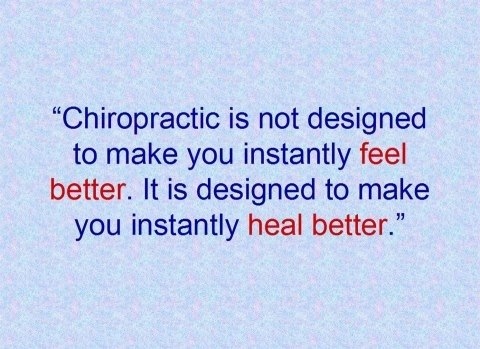Health
After the Crash
If you have been in a car crash you may have experienced the most common injury to the upper spine and neck. Common symptoms include joint pain, muscle pain, headaches, arm pain and leg pain. These symptoms occur when the vertebral joints and associated muscles and nerves are subjected to uncommon forces and movements associated with a car crash. It is important that you have an examination by your family chiropractor as soon as possible to support the recovery process.
Some people develop pain, stiffness and other symptoms 7-10 after an accident. This is not unusual, however, do not delay in seeking treatment from your chiropractic doctor.
Severe symptoms such as headache or arm/leg pain are also common. Advise your chiropractic doctor as soon as possible.
For most people, the pain and other symptoms associated with spinal injury usually decreases with gradual return to normal activity.
Most injuries are not serious and people often recover to their pre-accident condition. The amount of disruption to normal activities varies with the circumstances of the crash.
It is important to be aware that the effects of substantive crashes may recur over 6-18 months. Symptoms and effects will lessen gradually.
Your Recovery
Consult your chiropractor for examination, diagnosis and to discuss your recovery options. Your chiropractor may recommend steps to treat any pain you experience including:
Necessary spine and related care
Modification to current activities
Home stretching and strengthening exercises
Ergonomic advice
Once you and your chiropractor have agreed on a treatment plan, it is important that you follow your chiropractor’s advice to support the recovery process.
Prevention
Closer head restraints can be twice as effective in preventing injuries as those that are set too far back. To ensure the head restraint is adjusted correctly and that you stay safe on the road:
Raise your headrest so the top of it is at least level with the top of your ears.
Your headrest should be as close as possible to the back of your head.
Make these adjustments each time you ride in a vehicle with an adjustable headrest.
Always wear your seatbelt when you are in a moving vehicle. The belt should be securely fastened and rest snuggly across your waist and shoulder.
Drive safely.
Following the rules of the road will significantly lower your risk of an accident.



Good digestion:
Because posture begins with your core, it directly affects digestion. Poor posture can contribute to acid reflux by weakening your esophagus. Siting in a hunched position or lying down directly after a meal places stress on the stomach that promotes heartburn and indigestion. If you’re looking to ease digestion and practice better posture after a meal, watch your posture and exercise regularly.
Better breathing:
Deep breathing can become second nature, not just a yoga luxury. Rather than compressing your abdomen and chest, prevent shallow chest breathing by standing up straight and sitting tall at your desk. Good posture allows the front of your body to open and your diaphragm to work at its best. Still in doubt? Test it for yourself — right now — and notice the difference.
Tightens your core:
Poor posture may be the one thing preventing you from getting that six-pack. When you slouch, you start to reverse the benefits all those planks. By practicing better posture, you’ll keep your entire core engaged, even when you’re not at the gym. Sitting on an exercise ball at work is a great way to enforce good posture and tighten your core while on the job.
Strengthens back muscles, reducing pain:
Slouching at your desk or while standing puts extra strain on the muscles that support your spine, ultimately leading to other aches and pains as well. Improving your posture by unlearning all your bad postural habits and standing with your feet hip-distance apart can be the key to relieving chronic pain.
Looking slimmer:
Ladies, it’s true, bad posture makes you look heavier than you are! Standing up straight can make you look five pounds slimmer without dieting. Good posture will help you stand tall (and rock your bikini) with confidence.

Why should we drink warm water with lemons? What are the benefits?
1. Boosts your immune system: Lemons are high in Vitamin C and potassium. Vitamin C is great for fighting colds and potassium stimulates brain and nerve function and helps control blood pressure.
2. Balances pH: Lemons are an incredibly alkaline food, believe it or not. Yes, they are acidic on their own, but inside our bodies they’re alkaline (the citric acid does not create acidity in the body once metabolized). As you wellness warriors know, an alkaline body is really the key to good health.
3. Helps with weight loss: Lemons are high in pectin fiber, which helps fight hunger cravings. It also has been shown that people who maintain a more alkaline diet lose weight faster. And my experience is that when I start the day off right, it’s easier to make the best choices for myself the rest of the day.
4. Aids digestion: The warm water serves to stimulate the gastrointestinal tract and peristalsis – the waves of muscle contractions within the intestinal walls that keep things moving. Lemons and limes are also high in minerals and vitamins and help loosen ama, or toxins, in the digestive tract.
5. Acts as a gentle, natural diuretic: Lemon juice helps flush out unwanted materials because lemons increase the rate of urination in the body. Toxins are, therefore, released at a faster rate which helps keep your urinary tract healthy.
6. Clears skin: The vitamin C helps decrease wrinkles and blemishes. Lemon water purges toxins from the blood which helps keep skin clear as well.
7. Hyrdates the lymph system: This cup of goodness helps start the day on a hydrated note, which helps prevent dehydration (obviously) and adrenal fatigue. When your body is dehydrated, or deeply dehydrated (adrenal fatigue), it can’t perform all of it’s proper functions, which leads to toxic buildup, stress, constipation and the list goes on. Your adrenals happen to be two small glands that sit on top of your kidneys and along with your thyroid, they create energy. They also secrete important hormones, including aldosterone. Aldosterone is a hormone secreted by your adrenals that regulates water levels and the concentration of minerals, like sodium, in your body, helping you stay hydrated. Your adrenals are also responsible for regulating your stress response. So, the bottom line is that you really don’t want to mess with a deep state of dehydration!
Adopting just this one practice of drinking a cup of warm water with lemon in the morning for a month can radically alter your experience of the day. Don’t be surprised if you begin to view mornings in a new light.








